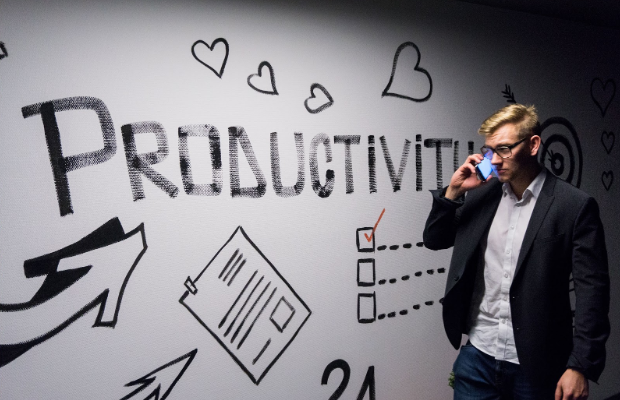There’s been a lot of talk in recent years about the importance of company culture for talent acquisition, employee engagement and productivity, as well as long-term employee retention. And unsurprisingly so, as the modern employee needs and wants to feel valued, and to work in a safe and stable environment where they are respected. So, no matter if you’re recruiting new team members or if you’re trying to keep your seasoned employees from jumping ship, it’s important to build a winning company culture.
As a manager or a CEO, it is your duty to be the leader to the fine men and women working for you, to create a culture on a foundation of honesty, transparency, equality, and trust, in order to prevent the job-hopping culture from prevailing in your company. Here are the five ways company culture and brand loyalty are connected, and what you can do to build both.
A case against a competitive culture
First things first, let’s address the common problem modern companies face nowadays – the dreaded competitive culture. Inexperienced business leaders will make the common mistake of creating a culture of competitiveness and rivalry in the workplace, offering incentives to those who complete a task first, and penalties to those who underperform, instead of focusing on team effort, positive encouragement, and mutual trust. Needless to say, the former is not a good way to build brand loyalty in the modern age.
It might have been a sound tactic many decades ago, but the modern office environment is quite different, and young talented individuals are unforgiving. If you support competitiveness in the workplace, you’re not only alienating your team members from one another, but you are also creating a wall between your employees and your brand. Pretty soon, all this competitiveness will turn into pent up agitation and distrust, ultimately forcing people to quit their jobs. Remember, a competitive work environment is not well suited for the modern generation of employees.
Emphasizing collaboration and co-dependence
Productivity is not just something that affects the performance of your brand in the competitive market – it also leads to increased brand loyalty down the road. You see, productivity is a mindset rather than a goal you need to achieve, as a continuous state of elevated productivity in the workplace will act as a motivator and an incentive for your employees to fall in love with their job and the brand they work for. Not to mention that they will truly enjoy the company of their colleagues, which will in turn fuel loyalty and productivity even further.
Focusing on collaboration, team effort, and co-dependence in the workplace is a great way to achieve these goals, but also keep your top-talent engaged over the long haul. Because remember, even the loneliest of wolves in your office can get overwhelmed by the weight of mounting responsibilities, and they could use the help and support of their peers – be sure to empower them and others to achieve all goals together and you will have yourself a thriving employee collective.
Using incentives to boost brand loyalty
Of course, brand loyalty doesn’t just come to life with promises of equality and transparency – you also need to offer up some enticing incentives for your employees in order to mold their perception of your brand. These incentives need to be valuable and tangible, real-life promotional products your employees can use however they see fit.
Tangible products that are branded with the company’s visuals the likes of Visa gift card incentives have become extremely popular with forward-looking companies in recent years, as they allow business leaders to reward their employees with more than just praise and a pat on the back, all the while putting the brand center stage. By using these types of products, employees are able to develop a deeper relationship with the brand, and feel truly appreciated for their contribution to the team and your company as a whole.
Creating an engaging work environment
In order to boost productivity and zeal in the workplace, all the while improving employee retention through brand loyalty, you need to analyze the current state of employee engagement in your office. Now, different generations will have different propensities for the types of engagement stimuli, which basically means that you can’t hope to engage all of your employees with the same tactics. To help every individual achieve success in the workplace and unlock their potential, you will need to cater to their needs.
There’s a lot of talk about the “cultural fit” nowadays, but if you’re trying to fit the person into your culture, you’re essentially forcing them to do reshape their mindset – an action that will yield subpar results in the long run. Instead, build a culture that praises individual traits and personalities, and encourage employees to do the things that make them happy. Identify the introverts and allow them to have their quiet time when they need to, and tell the extroverts to be mindful of other people’s personal space, for example.
Optimizing company policy to increase productivity
And lastly, be sure to review your company’s policies in order to see whether or not they support a more people-oriented culture. What you might find is that your own outdated policies are stifling productivity, alienating employees, and driving team members away from your brand when they should be inspiring them to stay at your side. Think how “prescriptive policies” are influencing the mindset of the individual, and whether or not they are telling them not to think as much as they should follow your directives – because chances are that that’s exactly the message your conveying.
Final thoughts
Company culture are brand loyalty are directly related, one influencing the other more than the fattest paycheck. If you want to retain the top talent in your company over the years while boosting productivity, be sure to implement these tips into your processes as soon as possible.

















